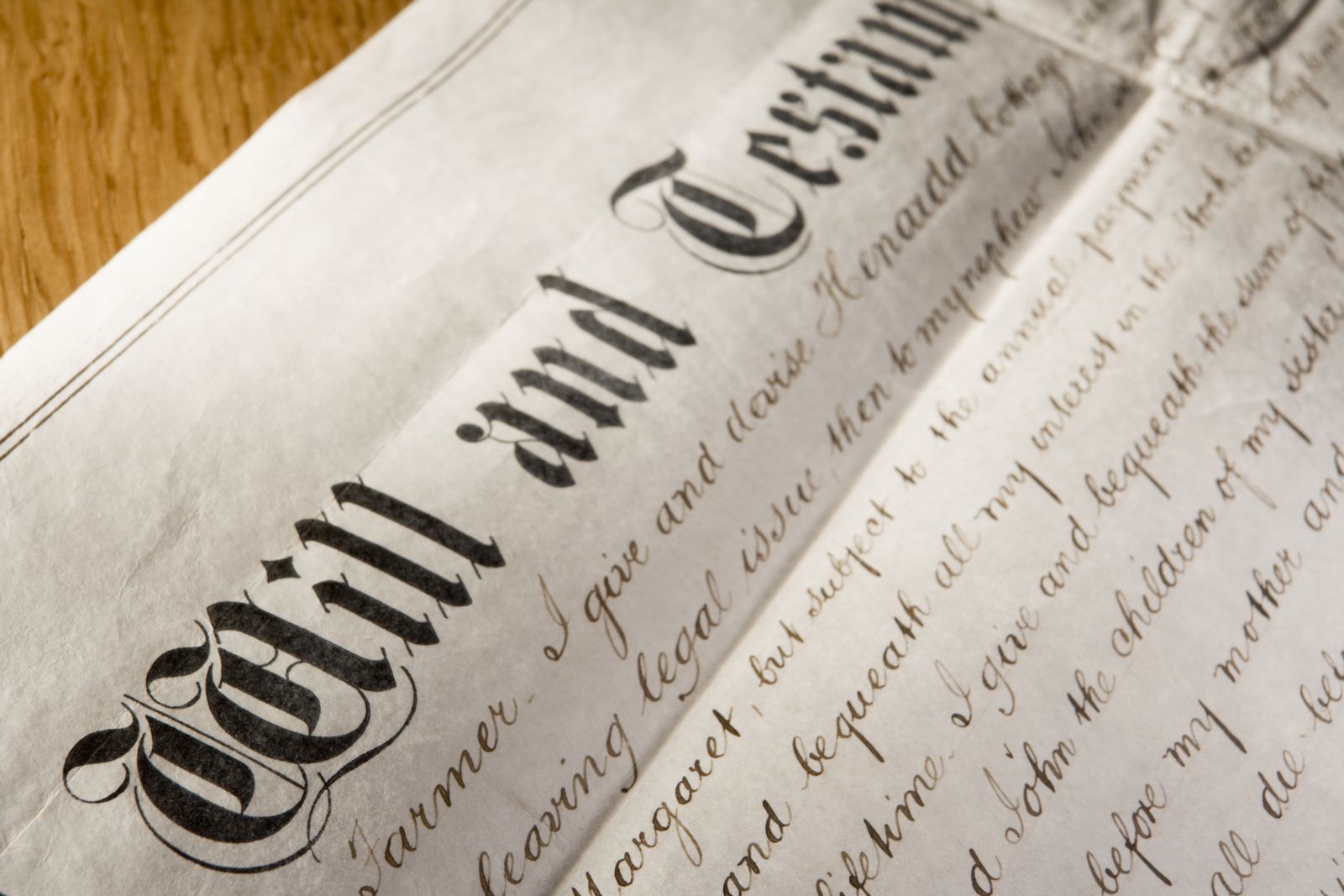What is a last will and testament?

A last will and testament, often referred to simply as a will, is the legal document that directs how your estate will be distributed after your death. Your “estate” is everything that you leave behind and includes things such as real estate, bank accounts, motor vehicles, business interests, firearms, artwork, stocks, bonds, mutual funds, and any other property you may own. Your will determines how these things will be distributed to your heirs. If you don’t have a will, your property will be distributed according to Connecticut law.
It’s important to know that not everything you own will be distributed according to your will. Certain assets, known as non-probate assets, are typically not controlled by your will. Non-probate assets are those that have built-in inheritance features and include life insurance, 401(k) accounts, IRAs, and property held in survivorship.
In the case of life insurance policies and retirement accounts, you’re generally able to name one or more beneficiaries of those assets. Naming beneficiaries for these assets takes them out of your probate estate and allows them to pass directly to the beneficiaries. These assets may become part of your probate estate, however, if you intentionally or unintentionally fail to name at least one beneficiary. In that situation, your estate is the beneficiary.
In the case of property held in survivorship, upon your death, the other owners of the property become the owners of your share of that property. This happens automatically, but depending on the type of property, a trip to the Probate Court may still be required to formalize the change in ownership. Real estate and bank accounts are the two most common types of property held in survivorship.
Depending on your circumstances and the anticipated value of your estate, you may want to consider including provisions in your will that establish one or more trusts. Trusts can be an effective way to minimize potential estate taxes, provide for someone with a disability or other special needs, or prevent young or irresponsible heirs from recklessly spending their inheritance. Another common provision you may want to consider is naming one or more guardians for your minor children in the event that you and your spouse (or the other parent) die in a common disaster such as an auto accident.